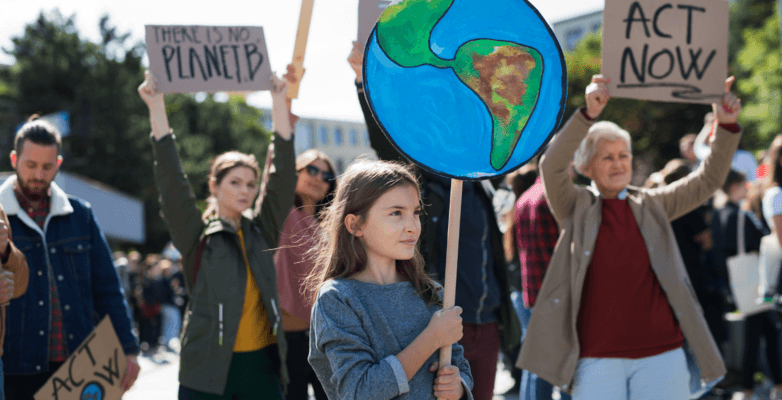
You’ve heard of greenwashing, but what is youthwashing?
Young people are being shown but not heard. At least in the decisions that matter.
With the climate movement inherently a future-focused cause, it’s not surprising that so many of the movement’s loudest voices are young people across the globe fighting for their future. What’s disheartening but equally unsurprising is how their tireless efforts are so often tokenized to aid political or corporate agendas.
By now, we’ve all heard about "greenwashing,” when brands or governments market their products or activities as sustainable or environmentally friendly, when in reality they do more harm than good. As more and more customers demand a commitment to sustainability from the brands they support, many less-than-sustainable organizations are putting more time, money, and effort into greenwashing their products than actually reducing emissions or becoming more sustainable.
What’s less well known is the emerging trend of "youthwashing.” Similar to greenwashing, it’s a term that “refers to young people’s voices being used in a performative way without paying attention to them or acting on concerns raised by this group.”
Or, to put it plainly, young people are being shown but not heard. At least in the decisions that matter.
As anyone watching the climate movement in recent years can tell you, youthwashing is on the rise, especially in spaces like the UN’s COP climate conferences. It’s there in politicians’ youth and diversity quota at COPs. It’s there in the fact that many youth participants can only register to attend through an NGO. (Even Greta Thunberg wasn’t technically “invited” to COP 26, which speaks volumes to the barrier of youth attending COP as a whole.) Event organizers are more than happy to encourage youth attendance and participation for the sake of good publicity and annual reports, yet when it comes to actually listening to their demands for aggressive action to protect their future, well, the silence begins. “Patronizing” doesn’t begin to describe it.
It gets worse. Young BIPOC climate activists are especially impacted by youthwashing, in that companies and countries want to broadcast their commitments to equity and diversity for public relations points – they just don’t want to actually listen to diverse voices.
Young people are not tokens to the climate agenda. They deserve to not only be heard, but invited to the table, and listened to when it comes to climate solutions. After all, they're the ones who will live with climate change.
If you want to help amplify youth voices in the climate fight, check out our Inconvenient Youth page and help share youth-focused media and uplifting youth voices in the climate movement. If you’re a young person looking to get more involved in the climate movement, head on over to our Campus Corps page and connect with young activists in your community.

